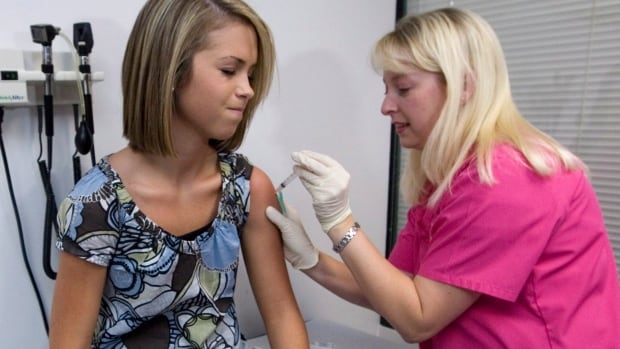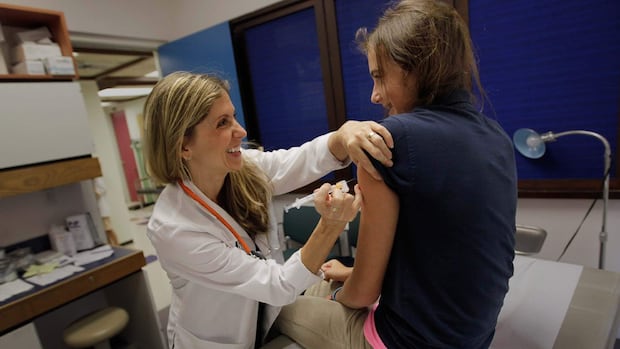
Canada’s federal vaccine advisory body is now recommending a single dose of the HPV vaccine for children and youth, bringing the country in line with multiple others that have already reduced the number of required doses for young people.
The new guidance, out Wednesday from the National Committee on Immunization (NACI), strongly recommends that individuals nine to 20 years of age should receive one dose of the vaccine for human papillomavirus, instead of two or three.
Research over the last decade has shown that one dose of this “highly effective vaccine” can provide comparable protection against HPV infection and disease among female individuals in that age group, NACI noted.
The advisory body still calls for two doses of the HPV vaccine for Canadians aged 21 to 26, along with a three-dose schedule for people who are immunocompromised or living with HIV.
In people without protection, persistent infection with high-risk types of HPV has been linked to cervical, oropharyngeal, vaginal, vulvar, penile and anal cancers.
“Individuals who are 27 years of age and older who were not vaccinated may benefit from vaccination, even at an older age,” NACI’s guidance continues.
England recently announced it will move to a single-dose HPV vaccine, following similar moves in Scotland and Australia. There are calls to do the same in Canada, but some immunologists say there still isn’t enough evidence to show that one dose is enough.
Other countries already switched to one-dose approach
The new recommendations follow the World Health Organization (WHO) announcing back in 2022 that a single dose delivers “solid protection” against HPV that’s comparable to two or three shots, based on a growing body of global evidence.
As CBC News reported in July 2023, multiple other countries — including England, Ireland, Scotland, Wales and Australia — had already made the switch to a one-dose approach.
“When you look at the studies that have been published worldwide … the effectiveness of one dose of the HPV vaccine is actually quite high,” Quebec-based physician and former NACI chair Dr. Caroline Quach said at the time.
“In terms of prevention of HPV infections that may lead to cancer, whether you give one dose or two doses basically gives you the same amount of protection.”
In Canada, the HPV vaccine is authorized for people between the ages of nine to 45.
Current immunization coverage among adolescents and young adults varies across the country and is below the national target of 90 per cent, NACI’s guidance said.


